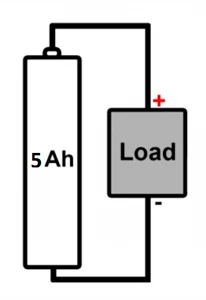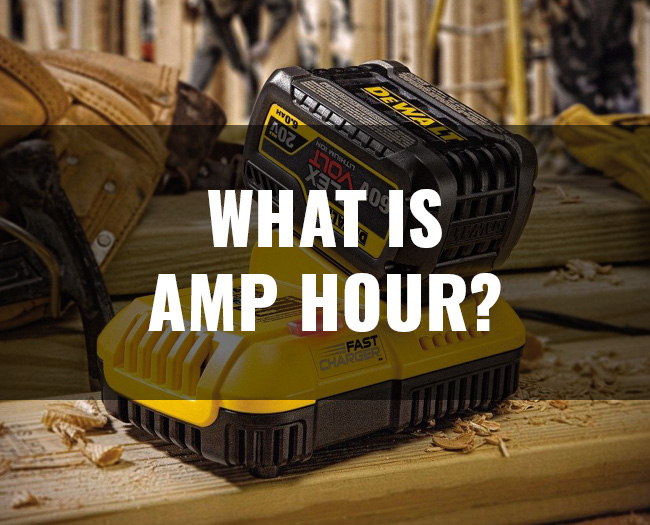You see batteries these days with different numbers on the side be it 3Ah, 5Ah, or even 12Ah but is that how powerful the battery is? How much better the battery is? Generally the higher the number on the side, the higher the price tag so its commonly accepted that more Ah is better. But what is Ah?
The first thing to understand is that Amp-hour and Amps are totally different things. We measure current (the speed of electrons leaving the battery) in amps (A) and we use Amp-hours (Ah) to measure the charge/capacity of the battery.
Let’s start with an example battery, a Makita 5Ah battery. We can see its stated as having a 5Ah capacity so, in ideal conditions, we can expect this battery to discharge at a maximum rate of 5 amps for 1 hour.
But this is the real world where “ideal conditions” just don’t happen so let’s think about it in a more real-world sense. You’ve got your 5Ah battery in your combi drill and you’re just plodding along drilling small holes in soft wood, not using much power at all. Your 5Ah battery is going to last a lot longer than someone using the same type battery in an SDS+ to bring down a house. This is because the loads are different.
Consider the crude diagram below as your battery being connected to your drill (the load). As you pull harder on the trigger the load increases and the battery must send the power through quicker to keep up. Power leaving quicker means higher amps and as the amps go higher, your buttery run time drops lower. This is because the battery does not have to discharge at a rate of 5A, that is just the maximum. If you keep the load low and let the battery discharge at a rate of 2.5A it will last 2 hours, if you keep the load even lower so the battery only has to discharge at 1A then your battery is going to last for a full 5 hours.

Just remember this equation:
Capacity (in Ah) / load (in A) = battery life (in hours)
Josh Says – Don’t be thinking that you can get a 5Ah battery to discharge at 10A for 30 minutes. I’m afraid it doesn’t work like that. Batteries have an internal impedance which is almost like a little resistor in the battery (its actually just the chemical limitations of the battery)
This is the thing that stops the battery from discharging quicker than it is capable of and it’s also the reason why your batteries get hot when you push them too hard.
If you’re ever in doubt, just give our team a call on 0208 532 5000 or leave a comment below and we will give you the best advice on what your batteries can and cant do!

